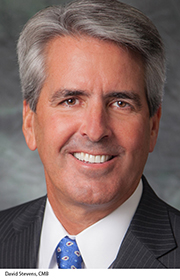
MBA Details Proposal on GSE Reform
The Mortgage Bankers Association released its much-anticipated white paper on reforming Fannie Mae, Freddie Mac and the secondary mortgage market.
GSE Reform: Creating a Sustainable, More Vibrant, Secondary Mortgage Market, (http://mba.org/GSEReform) provides a detailed picture of a reformed and revitalized secondary mortgage market. It also sheds light on two critical areas that have tested past reform efforts–the appropriate transition to the reformed system and the role of the secondary market in advancing an affordable housing strategy.
 “This paper not only lays out a detailed end state solution that will work for the residential and multifamily markets, but also the transition steps to accomplish this goal,” said MBA Chairman Rodrigo Lopez CMB, Executive Chairman of NorthMarq Capital, Omaha, Neb. “We look forward to working with Congress and the Administration to find a permanent, sustainable solution to the government’s role in housing finance that doesn’t repeat the mistakes that led to the crisis.”
“This paper not only lays out a detailed end state solution that will work for the residential and multifamily markets, but also the transition steps to accomplish this goal,” said MBA Chairman Rodrigo Lopez CMB, Executive Chairman of NorthMarq Capital, Omaha, Neb. “We look forward to working with Congress and the Administration to find a permanent, sustainable solution to the government’s role in housing finance that doesn’t repeat the mistakes that led to the crisis.”
MBA President and CEO David Stevens, CMB, said the proposal provides the “detail work” required of this complex issue.
“Key leaders on Capitol Hill and in the new administration have made it clear that GSE reform should be accomplished through bipartisan legislation,” Stevens said. “While progress has been made during conservatorship, only Congress has the power to ensure lasting reform.”
Specifically, MBA developed an approach to GSE Reform designed to:
–Inject much higher levels of risk-bearing private capital into the mortgage system, while dramatically reducing the system’s reliance on government support.

–Enhance the stability of the mortgage system with multiple guarantors that will operate as privately owned utilities.–Protect taxpayers and consumers with a clear set of market conduct rules, prudential requirements, and a new federally backed Mortgage Insurance Fund (standing behind the mortgage-backed securities, not the guarantors themselves) financed with appropriately priced insurance premiums.
–Ensure that mortgage lenders of all sizes and business models have equal access to the secondary market.
–Improve service and performance in the secondary market with multiple Guarantors competing on operations and systems development, customer service, product parameters and innovation, and pricing and execution.
–Minimize disruption during the transition to the new system by preserving what works in the current system and utilizing the existing regulatory framework where appropriate.
–Meet the needs of the full continuum of households, from families requiring the most directly subsidized, affordable rental homes to those served by the completely private jumbo single-family lending market.
This paper follows up on a January MBA paper, GSE Reform: Principles and Guardrails (https://www.mba.org/issues/residential-issues/gse-reform-principles-and-guardrails).
Both white papers derive from the work of the MBA Task Force for a Future Secondary Mortgage Market, consisting of individuals from MBA member companies who represent a broad cross-section of the residential and multifamily real estate finance industries, including entities of varying sizes and business models.
“The secondary mortgage market plays a vital role in promoting homeownership to underserved markets and affordability for all Americans,” said Debra Still, CMB, President and CEO of Pulte Mortgage, Englewood, Colo., and a Task Force member. “MBA’s proposal will help ensure lower costs for consumers and access to credit for lower income and first time homebuyers. Furthermore, GSE reform must be done with the objective of maintaining a level playing field for all lenders. The secondary mortgage market is strongest when it is well-positioned to serve the most diverse group of lenders possible. Supporting access to liquidity for all lender types–big, small, bank and nonbank–is critical to serving our diversifying customer base. MBA’s proposal meets these complementary goals.”
“The GSEs provide crucial support to the multifamily market,” said Mike May, Executive Managing Director and Head of Production (Conventional) with Berkeley Point Capital, Bethesda, Md., and a Task Force member. “MBA’s detailed end state solution preserves this role and expands its ability to support affordable housing and workforce housing for owners and for renters.”
